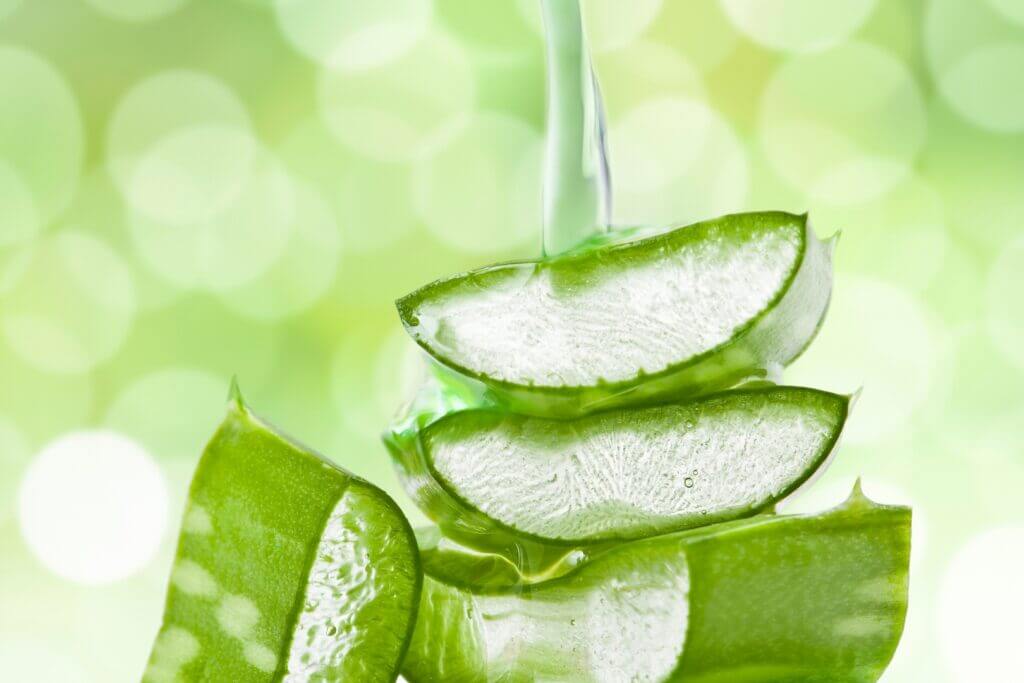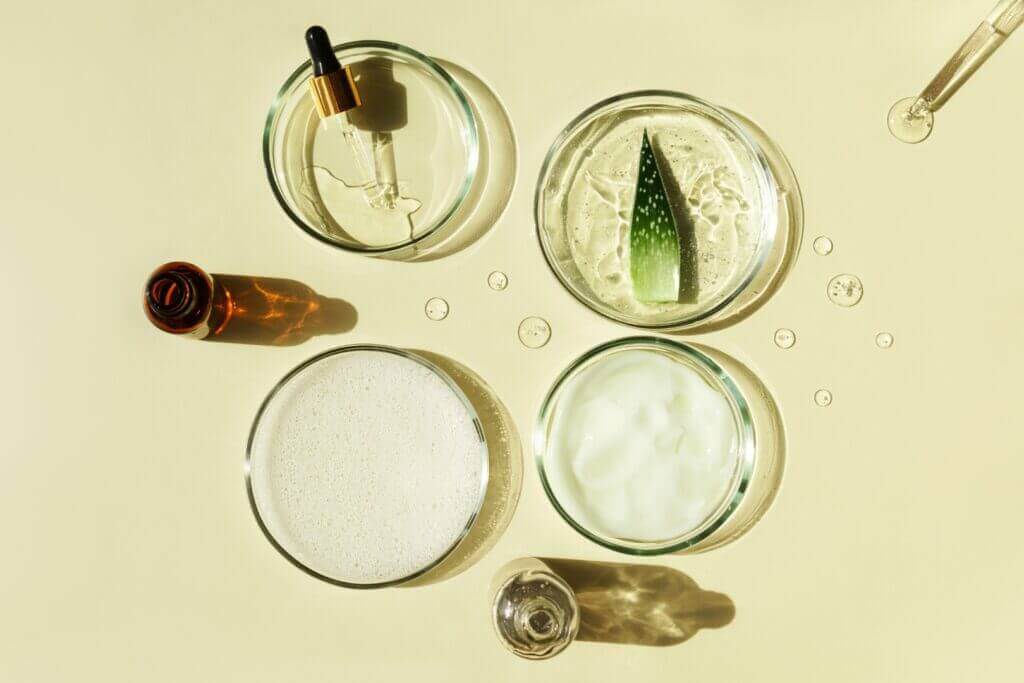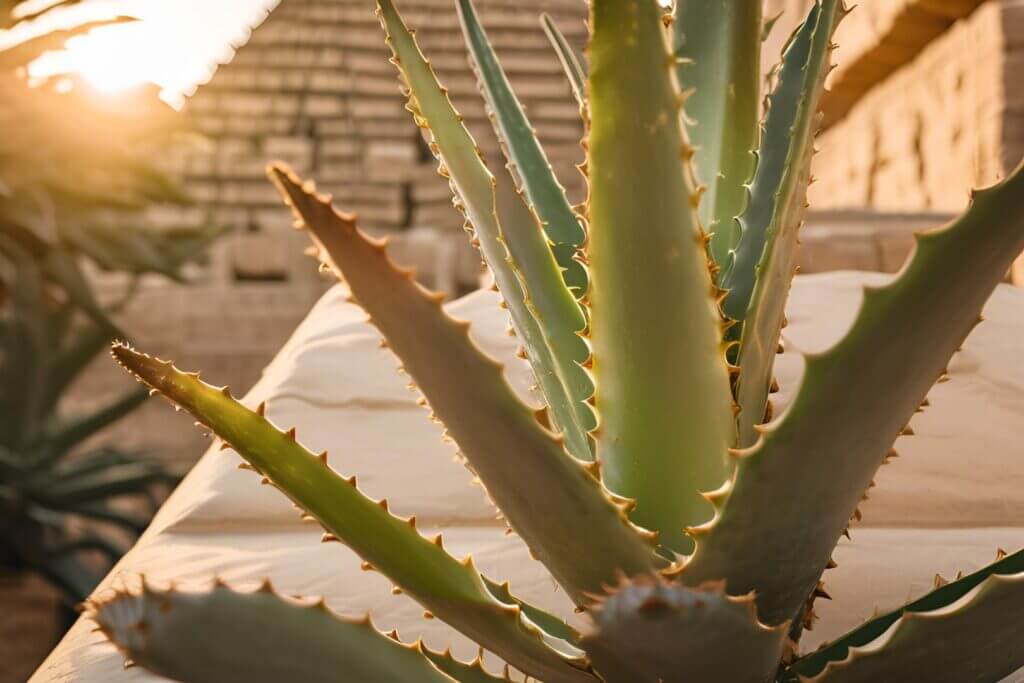
Menstruation and Your Skin – What You Need to Know
Everyone who has ever menstruated will tell you it affects your body in its entirety. When most people think about
Aloe vera, often dubbed the “plant of immortality,” has been a staple in skincare for centuries in cultures spanning the globe. This succulent plant, with its thick, fleshy leaves, is packed with a gel-like substance that offers a myriad of benefits for the skin and our health in general. Let’s dive deep into the wonders of aloe vera, exploring its origins, historical significance, and the numerous ways it can enhance your skincare routine.

Aloe vera is believed to have originated in the Arabian Peninsula, specifically in the Hajar Mountains of Oman and the eastern UAE. Its journey from these arid regions to becoming a global skincare phenomenon is fascinating. Ancient civilizations, including the Egyptians, Greeks, and Romans, revered the plant for its medicinal properties.
Cleopatra, the legendary Egyptian queen, was known to use aloe vera as part of her beauty regimen. It is likely that aloe vera helped to keep her skin hydrated and maintain its elasticity and softness. Something that was crucial in the harsh Egyptian climate. Cleopatra reportedly often combined it with other natural ingredients like honey and green grapes to create nourishing face masks. These combinations not only provided deep hydration but also helped soothe and rejuvenate her skin.
It’s fascinating how these ancient beauty practices still resonate today, highlighting the timeless benefits of natural ingredients. The use of aloe vera in skincare has transcended centuries, proving its efficacy and versatility. From soothing sunburns to moisturizing dry skin, aloe vera remains a staple in modern skincare routines, just as it was in Cleopatra’s time.
The plant’s use wasn’t limited to beauty alone. In ancient Mesopotamia, aloe vera was used to cleanse the body of impurities. Native Americans also harnessed its healing properties to soothe and protect the skin from harsh desert climates.

Aloe vera is a versatile plant that offers numerous benefits for the skin. The gel-like substance within the plant is packed with vitamins, minerals, and antioxidants that can enhance your skincare routine in various ways. Let’s explore some of the key benefits of this ingredient in skincare.
Aloe vera gel is a powerhouse of hydration. Its high water content helps to moisturize the skin without leaving it greasy, making it ideal for all skin types, especially oily and acne-prone skin.
The gel contains compounds known as acemannan and gibberellin, which have anti-inflammatory properties. This makes it an excellent remedy for soothing sunburns, reducing redness, and calming irritated skin.
This plant is renowned for its ability to accelerate wound healing by promoting the production of collagen and elastin, which are essential for skin repair and regeneration.
Rich in antioxidants such as vitamins C and E, it helps combat free radicals, which are responsible for premature aging. Regular use can reduce the appearance of fine lines and wrinkles.
Aloe vera’s antibacterial properties help to reduce acne-causing bacteria. Its anti-inflammatory effects also help to minimize the appearance of acne scars and blemishes.

Aloe vera has a rich history filled with fascinating stories and uses. From ancient civilizations to modern-day skincare, this plant has been revered for its healing and beautifying properties. Here are some cool facts and historical tidbits about the plant you might enjoy.
Revered as the “plant of immortality” in ancient Egypt, it was considered sacred and believed to hold the secrets to beauty, health, and longevity. Egyptians used aloe vera in burial rituals to protect and nourish the skin in the afterlife. The plant was so highly valued that it was used to measure a person’s wealth, and the amount of aloe a man brought as an offering to the deceased pharaohs indicated his wealth.
Legend has it that Alexander the Great used it to treat the wounds of his soldiers. Its healing properties made it a popular remedy for various ailments, including wounds, burns, and skin infections. It was also believed to have anti-inflammatory and pain-relieving properties. Alexander even conquered the island of Socotra, known for its abundant aloe vera plants, to ensure a steady supply for his army.
Today, aloe vera is a key ingredient in countless skincare products. You can find it in moisturizers, serums, face cleansers, masks, sunscreens and more. Its versatility and effectiveness have stood the test of time, making it a beloved component in both traditional and modern skincare routines. This ingredient is rich in nutrients and antioxidants, which provide numerous benefits for the skin. These benefits include hydration, soothing, anti-inflammatory, and antimicrobial properties. It is used to treat burns, wounds, psoriasis, sunburn, frostbite, and more.

Its journey from the arid deserts of the Arabian Peninsula to our modern-day skincare shelves is a testament to its enduring appeal and effectiveness. Whether you’re looking to hydrate, soothe, heal, or rejuvenate your skin, aloe vera is a versatile and powerful ally in your skincare arsenal.

Everyone who has ever menstruated will tell you it affects your body in its entirety. When most people think about

When it comes to skincare, many people are turning to products specifically designed for their individual needs. One of the

In today’s fast-paced world, finding moments of tranquility can feel like a luxury. Yet, one of the simplest and most

Traveling can be an exhilarating experience, but it often disrupts our daily routines, especially when it comes to skincare and

Dry, itchy, red skin isn’t something desired by most. However, it is something that almost everyone will experience at least

Here at Potency, it is widely known that we have a passion for powerful plant oils! Among our list of